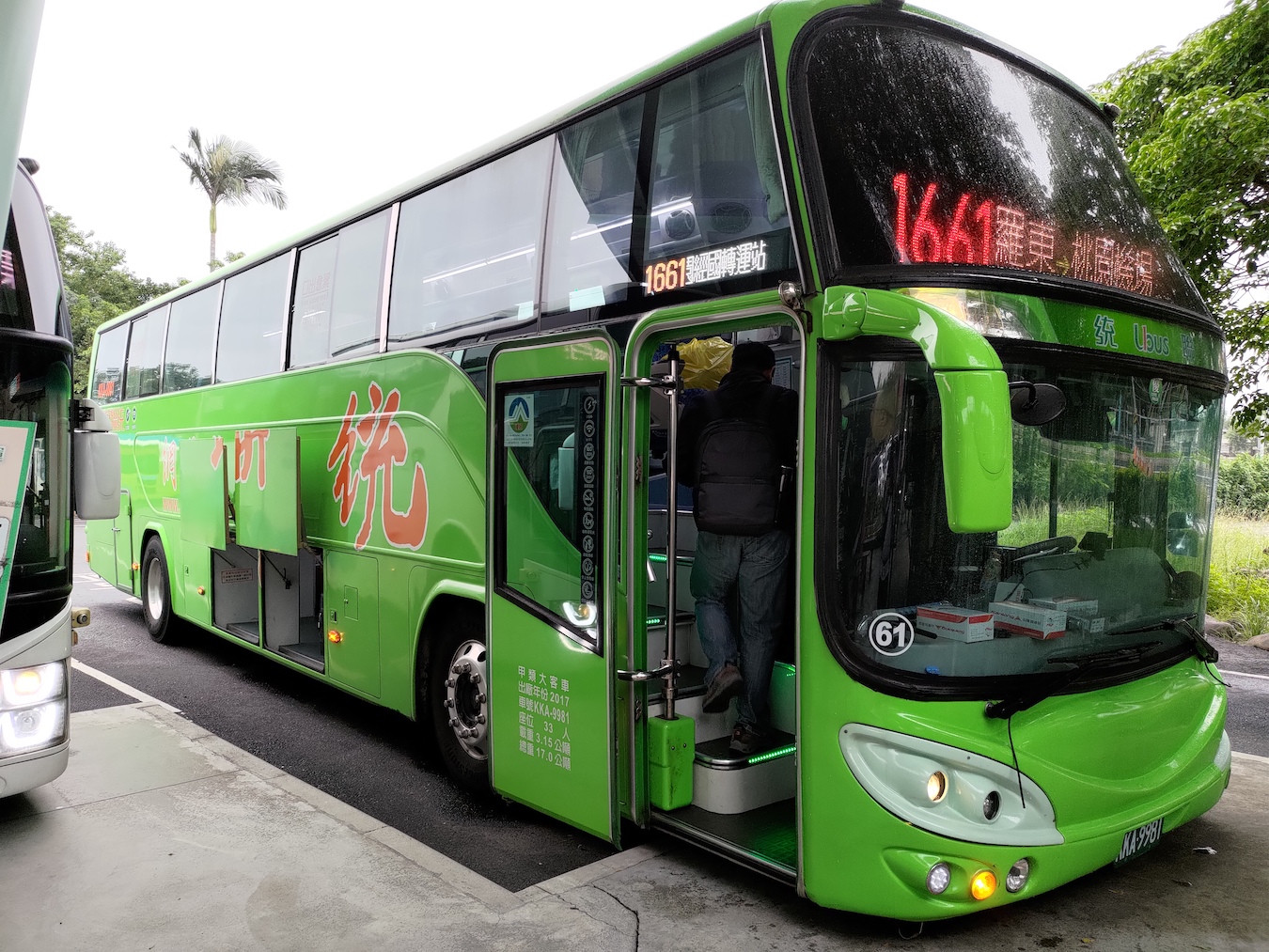by Brian Hioe
語言:
English
Photo Credit: Solomon203/WikiCommons/CC BY-SA 4.0
TWO PEDESTRIANS WERE injured in Sanchong in February after a bus plowed into a crosswalk, following a dizzy spell by the driver.
This is one of a number of incidents involving bus drivers passing out in past years. Usually, these stories, as reported on in the news, have two outcomes–one involving a tragedy that leads to loss of human life, or a miracle because the driver or passengers manage to park the vehicle safely.
Indeed, the most recent incident dates to February, with a Keelung bus driver hailed as a hero for pulling the bus over before he passed out. The bus driver in question later only awoke after a ten-day coma, indicating that he was still working despite the severity of his medical conditions. Other incidents in a similar vein include in January of this year, when a driver’s life was saved because a passenger performed CPR on him after he passed out at the wheel on a freeway near Taichung, a similar incident in September 2022, in November 2021, when a group of army recruits steered a bus to safety in Hsinchu after the driver suffered a heart attack, and in January 2015, when a high schooler that had never driven before managed to steer a bus to safety after the driver fainted.
Indeed, many of the fatal incidents involving bus drivers in the past decade are thought to have been due to overwork. In February 2017, it was suggested that the causes of a fatal bus accident that killed 33 were linked to the driver being overworked. Likewise, exhaustion from overwork was thought to be the cause of death of a driver found dead in a restroom in Keelung in January 2018. Overwork may have also been a contributing factor toward the murder-suicide of a bus driver in Taoyuan in 2016 after the driver deliberately started a fire on his bus, killing all of the 26 passengers aboard.
 Photo credit:
Photo credit:
At the same time, it has proven difficult for bus drivers to win improvements in their working conditions. For example, in September 2020, reports indicated bus drivers working for the Taoyuan Bus Company were made to fake their working hours by their employers. As it was required that bus drivers insert USB drives into their buses to log their working hours when they begin driving, it was found that the Taoyuan Bus Company was requiring that drivers use two sets of USBs in order to avoid their overwork being discovered. Reportedly, some drivers had been working seventeen-hour days for fifteen days at a time. It is also generally known to be an issue that while bus drivers are supposed to be granted one day off per week, they are frequently not allowed to take that day off.
Contributing to the issue were lax labor inspections by the Taoyuan Labor Inspections Bureau. Though the bureau was located only five hundred meters from Taoyuan Bus Company’s bus station, it proved easy to tip off drivers that inspectors were en route to the station, giving them ample time to hide their USB drives. To this extent, the Taoyuan Labor Inspections Bureau was accused of being lax in its inspections, knowing about the labor law violations, but being unwilling to take action regarding them.
The transportation industry has seen an uptick of union activity in the past decade. This has particularly been the case in the airline industry, with strikes by pilots and flight attendants. This has also been the case with railway workers, even if the yearlong struggle to prevent the reorganization of the Taiwan Railways Administration into a state-owned enterprise was unsuccessful.
Such labor activity has often benefited from the close relation of the state to companies in the transportation industry. It is often the case that unions in Taiwan direct their appeals to the central government to intervene and force negotiations between management and the union and this is especially effective as a point of leverage in the transportation industry, in which the government faces particular pressure to intervene and ensure that transportation occurs smoothly. Likewise, the government is itself often a significant stock owner when it comes to companies in the transportation industry.
Although this is also true of bus companies, it has proven more challenging to organize bus workers. It is to be seen whether this can be changed in the future, but the recurring pattern of drivers passing out at the wheel and this becoming a news story illustrates the systematic conditions faced.

